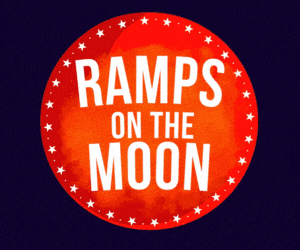The arts and culture sector needs to ’embrace innovation’ to deal with financial pressures caused by reduced income and rising costs, former Arts Minister Ed Vaizey has said.
Posting on Linkedin yesterday Lord Vaizey said that employer National Insurance contribution increases, the end of business rates relief, and the impact of the “war on non-doms”, who he said are key donors to the arts, have created a “tough climate for the sector”.
He went on to outline possible ways in which the sector can achieve financial resilience.
“There’s hope in Manchester’s tourist tax experiment, which could embed the arts in health and education,” he said.
“Long-term, generous funding remains essential, but maybe it’s time to embrace innovation — and yes, even [mergers and acquisitions] — to ensure a sustainable future for our cultural institutions.
“The arts are key to soft power, diplomacy, and national identity. Let’s secure their future with vision and creativity.”
Lord Vaizey addressing the House of Lords last Thursday 14 November (Video: UK Parliament)
His comments, which expanded on a speech he gave in the House of Lords during a debate last week, come after it emerged earlier this month that Arts Council England (ACE) is exploring ‘radical’ new business models for arts organisations as they struggle in the face of financial pressures.
Speaking at the annual Governance Now conference – held on 6 November, ACE’s executive director for enterprise and innovation, Tonya Nelson said the public funding body is “working with groups of organisations in pilots to think about how we can do resource sharing”.
Despite the financial challenges faced by arts and culture organisations there have not been many mergers within the sector.
One notable exception is the merger of sector support organisations The Audience Agency and Culture24 which joined forces after missing out on ACE National Portfolio funding for 2023-26.
And last month it emerged that Northern Ballet and Opera North were in talks about sharing an orchestra, in a move designed to “build financial resilience for both organisations”.
New forms of funding
During last week’s debate some peers called a fresh approach to financing the sector, with cross-bench peer Lord Freyberg saying that under the current system there is “serious doubt about our ability to maintain and develop our cultural institutions effectively”.
Labour peer Lord Bassam of Brighton asked the government to explore other ways of funding, including a smart fund – a small levy from the sales of electronic devices that can copy and store creative content in order to remunerate creators – and a music venue ticket levy.
“I urge the government to look again at Nesta and Arts Council funding, to see where the balance lies, and to find new sources of revenue so that cultural and arts institutions have a more certain funding base for the long term, in addition to what we make available through public funding,” said Bassam.
Speaking on behalf of DCMS, parliamentary under-secretary of state Baroness Twycross said she agreed it was “absolutely vital” to work with ACE and “leading thinkers” such as Nesta on understanding how to fundraise.
“On the smart fund, we are not ruling out that type of work, but we need to look at more evidence on user behaviour,” she said.
Advertisement

